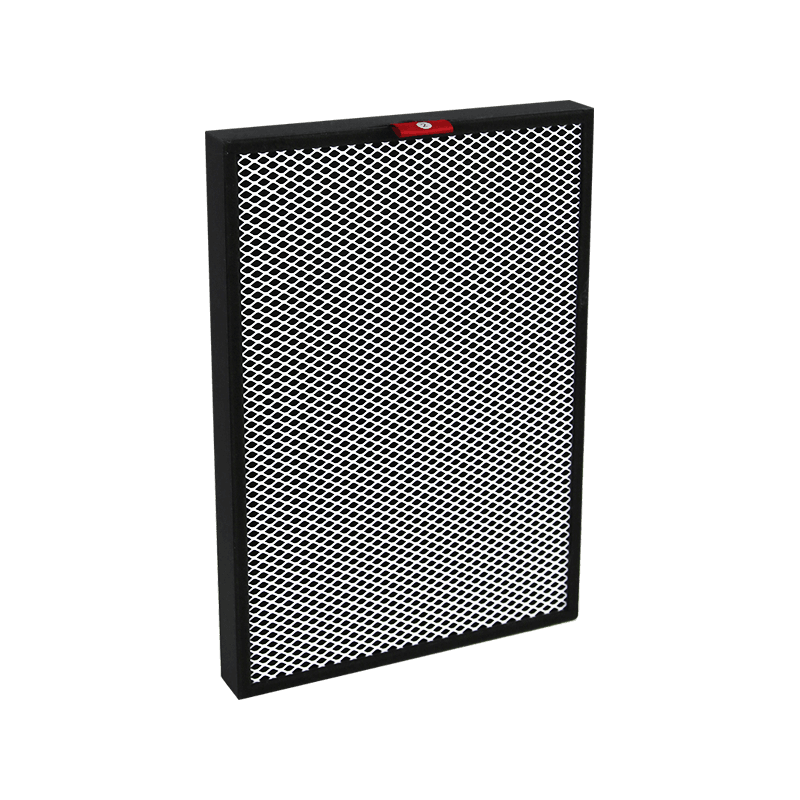From solutions to productions, we’re specialized in making the products you need.
News categories
Product categories
Activated Carbon Air Filters: The Key to Cleaner, Healthier Air
In today’s fast-paced world, air pollution has become a growing concern, especially in urban areas. From dust and allergens to harmful chemicals and unpleasant odors, the air we breathe is filled with various pollutants that can have detrimental effects on our health and well-being. To combat this, activated carbon air filters have emerged as a highly effective solution. These filters are known for their ability to remove a wide range of airborne contaminants, improving air quality and creating a healthier living or working environment.
An activated carbon air filter is a type of filtration device that uses activated carbon (also known as activated charcoal) to remove contaminants from the air. Activated carbon is a highly porous material with a large surface area, which makes it excellent at adsorbing gases, odors, and other harmful particles. Unlike regular filters, which primarily capture physical particles like dust or pollen, activated carbon filters work by trapping chemical impurities and volatile organic compounds (VOCs) that may be present in the air.

The filtering process relies on the principle of adsorption, where molecules are attracted and adhere to the surface of the activated carbon. This makes it highly efficient in removing a variety of airborne pollutants, including odors, smoke, volatile chemicals, and gases. Due to its ability to capture both large and small molecules, activated carbon is considered one of the most versatile and effective materials used in air filtration.
The efficiency of activated carbon air filters lies in the structure of the activated carbon itself. Activated carbon is made by heating carbon-rich materials, such as coconut shells or coal, in the presence of a gas. This process creates a network of tiny pores and cavities that increase the surface area of the carbon, making it ideal for trapping particles and chemicals.
When air passes through the filter, it is forced through the activated carbon, where the contaminants are adsorbed. The filter captures various pollutants, including:
Odors: Activated carbon is especially effective at removing unpleasant smells, such as cooking odors, pet smells, or tobacco smoke. Its large surface area allows it to absorb and neutralize these odors efficiently.
Volatile Organic Compounds (VOCs): VOCs are chemicals found in many household products like cleaning agents, paints, and air fresheners. These compounds can be harmful when inhaled over time. Activated carbon air filters trap VOCs, reducing the risk of exposure.
Smoke and Gases: Activated carbon filters are highly effective at removing smoke particles and harmful gases from the air, making them ideal for homes in areas affected by wildfires, or for smokers looking to improve indoor air quality.
Chemicals: Harmful chemicals, including formaldehyde and benzene, can be found in indoor air. Activated carbon can absorb these chemicals, helping to prevent respiratory issues and long-term health problems.
Improved Air Quality: The primary benefit of activated carbon air filters is their ability to significantly improve indoor air quality. By removing harmful chemicals, allergens, and odors, these filters create a healthier living environment for everyone in the household, especially for those with allergies or asthma.
Odor Removal: One of the most notable advantages of activated carbon filters is their exceptional ability to eliminate odors. Whether it’s the smell of cooking, pet odors, or tobacco smoke, activated carbon works to neutralize these smells, leaving the air fresher and cleaner.
Healthier Breathing Environment: Poor air quality can contribute to respiratory issues, headaches, and other health problems. By removing pollutants like VOCs and gases, activated carbon air filters help reduce the risk of these issues, promoting a cleaner, healthier atmosphere.
Versatility: Activated carbon filters are highly versatile and can be used in a variety of settings. They are commonly found in air purifiers, HVAC systems, and even in industrial and commercial applications. Their ability to remove a wide range of contaminants makes them ideal for diverse environments.
Energy Efficiency: Since activated carbon filters don’t require high-powered fans or complex systems to work, they are relatively energy-efficient. They work quietly and effectively, making them a cost-effective solution for maintaining healthy air quality.
Residential Use: Many homeowners use activated carbon air filters in air purifiers, HVAC systems, and vacuum cleaners. These filters help reduce the presence of allergens, odors, and chemicals, creating a more pleasant and healthy living space.
Commercial and Industrial Use: Activated carbon air filters are widely used in commercial buildings, factories, and laboratories where air quality is of utmost importance. In industries like pharmaceuticals, food production, and automotive, activated carbon filters help maintain a clean environment and prevent contamination.
Vehicles: In vehicles, activated carbon air filters are often used to remove exhaust fumes, VOCs, and unpleasant odors from the cabin air, providing a more comfortable and cleaner driving experience.
Medical and Healthcare Settings: Hospitals and healthcare facilities use activated carbon filters in air purification systems to help prevent the spread of airborne pathogens and chemicals. They are also used in specialized equipment to create sterile environments for surgeries or laboratory work.
When selecting an activated carbon air filter, it’s important to consider the following factors:
Size and Compatibility: Ensure that the filter is compatible with your air purifier or HVAC system. Check the dimensions and specifications to ensure proper fit.
Filter Life: Activated carbon filters typically need to be replaced every 6 to 12 months, depending on the level of pollutants in the air. Be sure to choose a filter that suits your needs and offers a reasonable lifespan.
Efficiency: Look for filters with a high adsorption capacity to ensure effective removal of contaminants. Higher-quality filters are typically more effective at trapping gases, odors, and chemicals.
HEPA Filter is essential for maintaining health and well-being
Learn more about Cartridge Filters: structure, functionality, and wide range of applications
related products
Copyright 2023 Nantong Henka Environment Solutions Co.,Ltd. All Rights Reserved


 English
English русский
русский Español
Español 简体中文
简体中文

























